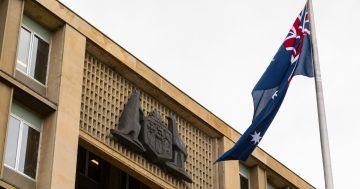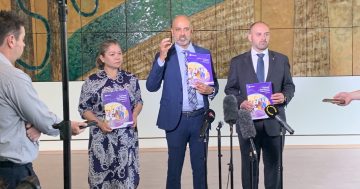
The APS can’t lead on multiculturalism policy if it is not itself leading on inclusiveness. Photo: File.
The Australian Public Service must deliver on its quest to be more inclusive if it wants to be in a position to better support multiculturalism in Australia.
That’s one upshot from the just-released report of the Multicultural Framework Review, and the union representing the public service couldn’t be more pleased.
The Community and Public Sector Union said it pushed hard during the review to draw attention to how uniquely placed the APS is in leading the charge on multiculturalism, and that it must start by being more representative itself.
The CPSU noted the review drew significantly from the union’s submission to it.
In its submission, the union emphasised the need for the APS to model inclusion for broader change to occur.
“Unless the decision-makers in the APS who influence policies, programs and service delivery genuinely reflect Australia’s cultural diversity at all levels, it will be difficult to properly deliver an effective multicultural agenda,” the CPSU’s submission said.
National secretary Melissa Donnelly said she was pleased the review picked up on that theme.
“Our union has been a long-term advocate for a more representative APS – one that reflects our multicultural country and is well placed to deliver good outcomes for all Australians, regardless of their background,” Ms Donnelly said.
“This review highlights just how important it is for the government to be a model employer, and for the public service to represent the people it is there to serve.
“There needs to be diversity amongst decision-makers and all those who influence policies, programs and service delivery.
“Our submission to the Multicultural Framework Review drew on the knowledge and experience of our members and highlighted common themes identified across the APS.
“These included the impact of underrepresentation, the importance of Senior Executive Service leadership in shaping an agency’s culture, frustrations about the lack of career progression opportunities, and that culturally and linguistically diverse strategies need to have clear outcomes, be enforceable and properly funded.”
Calls for specific actions to be taken in areas such as setting clear targets, issuing APS Commissioner Directives on diversity, addressing workplace racism and improving security clearance processes have been supported in the review.
Shortly before he was replaced as Minister for Immigration, Citizenship and Multicultural Affairs, Andrew Giles said the review was the first major examination of the state of Australian multiculturalism in a generation.
This independent report assesses the health of Australia’s multicultural society, and makes recommendations to strengthen it for generations to come.
A review panel travelled the country and consulted with more 1430 individuals and 750 organisations, including community groups, in more than 200 meetings.
“Multiculturalism is one of the great successes of modern Australia, but there is still much work remaining to ensure all communities feel safe and can be proud of who they are, regardless of their religious, ethnic or cultural background,” Mr Giles said.
“The review writes a new chapter in our multicultural story, and will inform how we can work together to achieve a vibrant, prosperous multicultural future.
“Our shared values of respect, unity and compassion will underpin our multicultural nation, and the report reflects how these principles can guide us towards peace and understanding.
“Our diversity is our greatest strength, and this review showcases an Australia that we can build together as one united nation.”
Recommendations from the review include creating a multicultural affairs commission, as well as initiatives to build cultural capability into public services, modernise grant programs, ensure digital inclusion, ensure a sustainable language services sector, and meet the unique needs of young people and regional areas.
Other recommendations include improving the diversity of recruitment in the public sector, promoting national diversity and inclusion standards, investment in community-driven solutions, and truth-telling about our history with First Nations people.
The report also suggests Australia formally observe the International Day for the Elimination of Racial Discrimination.
Race Discrimination Commissioner Giridharan Sivaraman described the report as a significant step towards the greater recognition of the rights of racially marginalised Australians.
He welcomed the call in the report to acknowledge people’s experiences of racism and discrimination and support for the Human Rights Commission’s anti-racism strategy.
“For years, people of racially marginalised backgrounds have been calling for a greater say in the policies that affect them and shape their lives,” Commissioner Sivaraman said.
“We agree that listening to and including the voices of hardly-reached communities in policy-making should be a priority.
“The Multicultural Framework Review is a necessary first step to help dismantle systemic racist practices that restrict the rights of so many in our country.
“If Australia wants to live up to its dream of being an inclusive society that truly embraces its diversity, we need an embedded national strategy to combating systemic racism.”



















